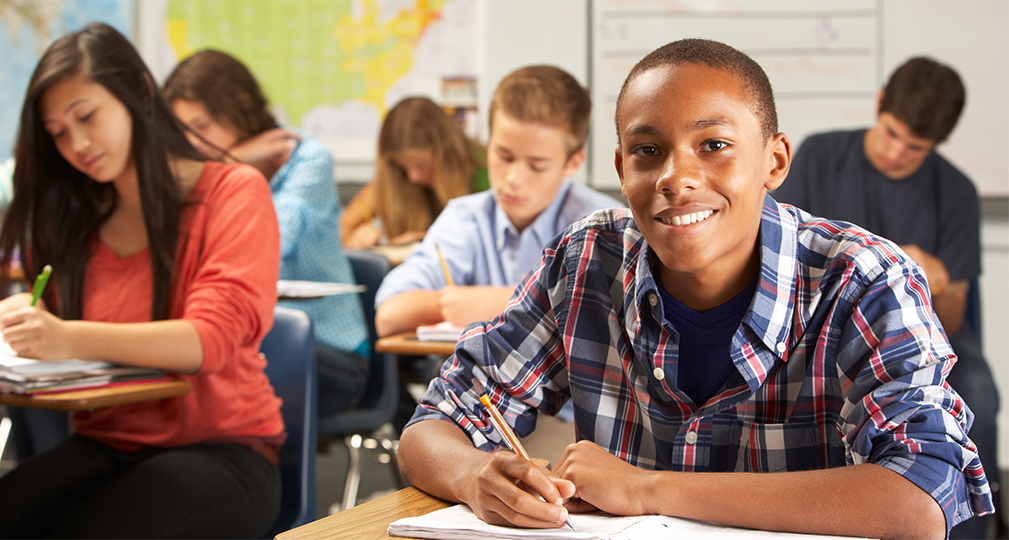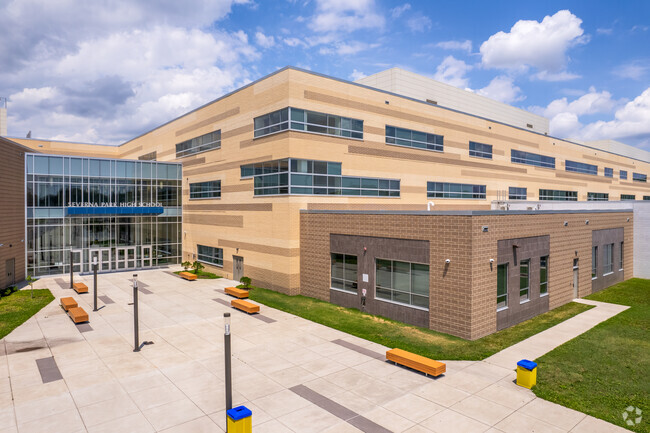Sign up with the Motion to Save Temecula Schools: Community Action Needed!
Sign up with the Motion to Save Temecula Schools: Community Action Needed!
Blog Article
Recognizing the Value of Institutions in Child Growth and Neighborhood Growth
Schools act as critical institutions for kid development and neighborhood development, providing settings where academic success are complemented by the cultivation of social abilities and direct exposure to varied viewpoints. These educational settings not just promote vital reasoning and effective communication yet also foster empathy via joint projects. Institutions' involvement with neighborhood neighborhoods via service-learning initiatives strengthens the bond between families and educational organizations. This cooperative relationship underscores the significance of institutions in supporting energetic citizenship and long-lasting understanding habits. However, what are the certain devices through which these establishments attain such extensive impacts?
Academic Success
Academic accomplishment works as a cornerstone of kid growth, supplying the foundation upon which future knowing and success are built. Schools play an essential function in promoting this academic growth, using organized atmospheres where kids can get necessary knowledge and cognitive skills. Standard curricula ensure that pupils gain efficiency in core subjects such as mathematics, scientific research, and language arts, which are essential for both higher education and learning and expert opportunities.
Along with passing on basic academic abilities, colleges additionally grow vital thinking, problem-solving capabilities, and intellectual curiosity. These cognitive expertises are important for browsing complex real-world scenarios and adapting to the ever-evolving needs of the contemporary office. Teachers, as facilitators of learning, utilize varied pedagogical methods to deal with different understanding styles, therefore making the most of private student possibility.
Furthermore, scholastic success is very closely connected to self-esteem and motivation. Kids that experience scholastic success are much more likely to create a positive self-concept and a lifelong enthusiasm for knowing. Schools likewise use different sources, such as libraries and technology, which additionally boost the academic experience and prepare trainees for a highly sophisticated culture.
Social Ability Advancement
Beyond academic accomplishment, the function of colleges in social ability growth is essential. Schools act as a key location for youngsters to find out and exercise essential social abilities such as communication, dispute, and teamwork resolution. In the organized atmosphere of a classroom, students engage with peers, instructors, and various other institution personnel, supplying countless chances to establish these crucial capabilities.
Efficient social ability advancement in schools is promoted through team tasks, collective tasks, and extracurricular programs. These interactions aid students understand social norms, construct compassion, and foster a sense of community. As an example, team projects show students just how to interact towards an usual objective, pay attention to various viewpoints, and navigate disagreements constructively.

The cultivation of social skills throughout college years lays a foundation for future individual and professional connections. Save Temecula Schools. As pupils develop, the ability to properly communicate and work together ends up being significantly crucial, highlighting the institution's critical role in all natural child growth
Exposure to Variety
Exposure to variety in colleges is fundamental to promoting a comprehensive way of thinking and expanding trainees' viewpoints. Schools act as a microcosm of the wider society, and coming across varied cultures, languages, and socioeconomic histories within this atmosphere gears up pupils with necessary skills for navigating an increasingly globalized globe. This exposure motivates empathy, minimizes bias, and promotes mutual respect amongst peers.
Research study suggests that pupils who interact with peers from diverse backgrounds exhibit far better analytic abilities and creativity. This understanding of variety prepares trainees for future offices that worth modern skills - Save Temecula Schools.

Community Interaction
The advantages of diverse class prolong past the institution wall surfaces, fostering a strong sense of area interaction amongst pupils. By engaging with peers from various social, socioeconomic, and ethnic backgrounds, students gain a wider viewpoint and a gratitude for diversity. This exposure encourages them to become energetic citizens who are willing to contribute positively to their neighborhoods.
Institutions that highlight neighborhood engagement frequently incorporate service-learning projects, which allow students to address real-world issues while applying academic abilities. These tasks not only boost pupils' understanding of their coursework however likewise impart a feeling of obligation and empathy. Moreover, collaborations between colleges and local companies give pupils with opportunities to join neighborhood events, further strengthening their function as positive community participants.
In click site addition, adult and area involvement in schools enhances the bond between instructional institutions and the neighborhoods they offer. With these efforts, schools play an essential duty in supporting community interaction and cultivating societal growth.
Lifelong Learning Behaviors
Developing lifelong knowing practices is vital for a youngster's continual development and versatility in an ever-changing globe. Colleges play a critical duty in instilling these habits by producing web link a setting that cultivates inquisitiveness, critical thinking, and a love for expertise. With varied educational programs and after-school activities, instructors motivate trainees to check out numerous topics, analyze details seriously, and use their finding out to real-world situations.

Additionally, schools offer an organized setting where kids can develop self-control and time management abilities, both of which are essential for continual learning. By highlighting the relevance of establishing goals, showing on progression, and adjusting strategies, schools prepare pupils to navigate the intricacies of grown-up life, guaranteeing they remain lifelong learners and contributors to society.
Conclusion
In final thought, schools are necessary in cultivating kid advancement and community development by supplying atmospheres helpful to academic success, social ability advancement, and exposure to diversity. Eventually, schools grow lifelong learning behaviors, furnishing people with the necessary expertise and skills to add positively to culture.
In the structured setting of a classroom, trainees communicate with peers, teachers, and other college staff, supplying numerous chances to establish these essential abilities.
In significance, direct exposure to diversity within company website institutions not only improves individual students however also reinforces the social textile of the community as a whole.
The benefits of diverse classrooms expand past the college walls, promoting a solid feeling of community interaction among students.Institutions that stress community engagement typically incorporate service-learning tasks, which allow students to deal with real-world issues while using scholastic skills. Partnerships between institutions and regional companies give trainees with opportunities to participate in community events, even more solidifying their function as proactive community members.
Report this page